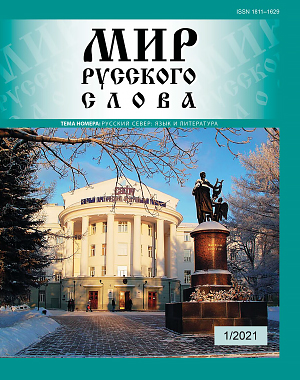Email: The Reality of Distance Learning or an Extra Learning Object?
DOI:
https://doi.org/10.24412/1811-1629-2021-1-87-90Abstract
The article is devoted to the analysis of foreigners’ communicative written speech. It notes that teaching writing does not lose its relevance from the point of view of the process of creating a communicative culture. The study took into account the peculiarities of the contingent of students belonging to the pre-university stage of education. The article describes the features of the transition to distance learning at the Institute of International Education, Voronezh State University. In addition, the article lists the tools that were used at IIE of VSU in the context of a distance learning format. The author considers the results of Internet correspondence with foreign students, taking into account their awareness of a complex of extralinguistic factors that determine speech behavior. The objects of analysis are components of an e-mail, which has become a means of communication between a teacher and a student. A special attention is drawn to the format of the e-mail, its structural and etiquette elements. At the same time, the authors characterize the discourse of foreigner’s linguistic personality, which is reproduced in a real situation. Attention is also paid to the diffi culties that hinder the formation of the skills helping to carry out speech activity in a foreign language. The author is convinced that in the changed conditions of teaching Russian as a foreign language, written speech should become an object of teaching foreign students. At the end of the article, training is proposed as a means of forming communicative competence and creating an adaptive educational environment.
Keywords:
distance learning, email, learner discourse
Downloads
References
References
Downloads
Published
How to Cite
Issue
Section
License
Articles of "The World of Russian Word" are open access distributed under the terms of the License Agreement with Saint Petersburg State University, which permits to the authors unrestricted distribution and self-archiving free of charge.




